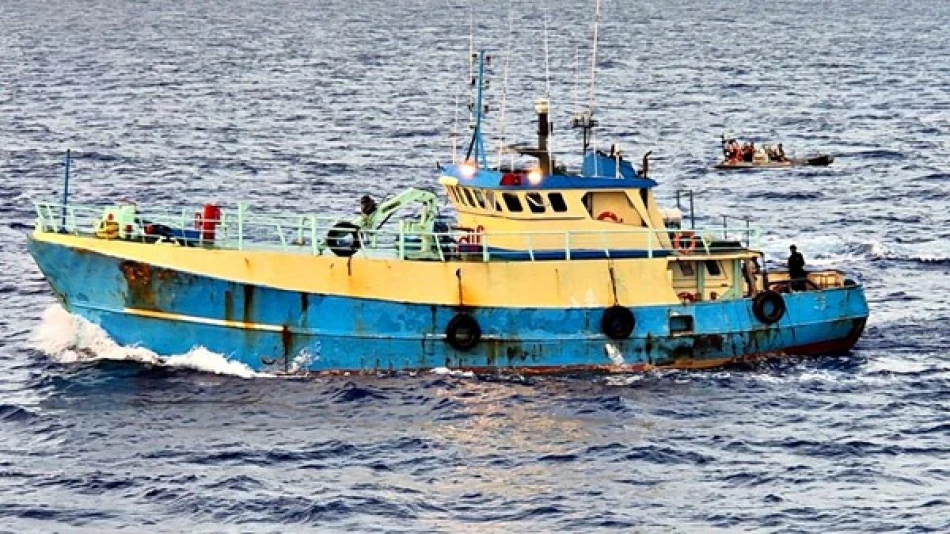
Massive Drug Bust: 3 Tons of Cocaine Seized Near Canary Islands
Spain Intercepts 3-Ton Cocaine Shipment in Major Atlantic Drug Route Bust
Spanish authorities have seized three tons of cocaine from a vessel operating along a key Atlantic smuggling corridor to Europe, highlighting the Canary Islands' growing role as a critical interception point in the international war on drugs. The operation, involving five countries and resulting in five arrests, underscores how drug cartels are increasingly using deteriorating vessels for high-stakes oceanic smuggling runs.
International Coordination Targets Repeat Offender
The Spanish Civil Guard and Customs intercepted the vessel "Sky White" off the Canary Islands after a year-long surveillance operation. The boat, carrying approximately 3,000 kilograms of cocaine, had been under suspicion for conducting multiple annual Atlantic crossings as part of large-scale drug trafficking operations targeting European markets.
The bust required coordination between security forces from Spain, Morocco, France, the United States, the United Kingdom, and Portugal—a level of international cooperation that reflects the sophisticated nature of modern drug trafficking networks. The interception occurred in international waters with military support, demonstrating the complex jurisdictional challenges these operations face.
The Atlantic Cocaine Pipeline
This seizure illuminates a critical smuggling route that has become increasingly important as European demand for cocaine continues rising. The Canary Islands, positioned strategically between South American production centers and European consumer markets, have emerged as a key waystation for traffickers seeking to avoid more heavily monitored Mediterranean routes.
The choice of vessel tells its own story about cartel economics. Authorities described the "Sky White" as being in "extremely poor condition," creating safety risks for its own crew. This reflects a calculated risk-reward strategy where criminal organizations use expendable vessels for high-value shipments, viewing potential losses as acceptable business costs.
Growing Pressure on Traditional Routes
The multi-national nature of this investigation signals a broader shift in anti-drug enforcement strategy. As cartels adapt their methods, law enforcement agencies are increasingly forced to coordinate across borders and jurisdictions. The involvement of Moroccan authorities is particularly significant, given Morocco's position as both a cannabis producer and transit point for South American cocaine.
European cocaine seizures have reached record levels in recent years, with Antwerp and Rotterdam serving as primary entry points. However, operations like this Canary Islands bust suggest traffickers are diversifying their routes, potentially making smaller Atlantic islands more attractive to smuggling networks seeking less scrutinized pathways.
Economic Impact and Enforcement Challenges
The street value of three tons of cocaine represents tens of millions of euros in potential criminal profits, making such operations attractive despite the risks. For law enforcement agencies, these maritime interdictions require significant resources—including military assets for international water operations—that strain budgets and operational capacity.
The deteriorating condition of smuggling vessels also creates humanitarian concerns, as crews often operate under dangerous conditions with minimal safety equipment. This adds complexity to interdiction operations, where authorities must balance enforcement objectives with potential rescue operations.
As European authorities continue disrupting established trafficking networks, the success of operations like this one will likely determine whether alternative routes through Atlantic islands become more or less attractive to international drug cartels.
Most Viewed News

 Layla Al Mansoori
Layla Al Mansoori






